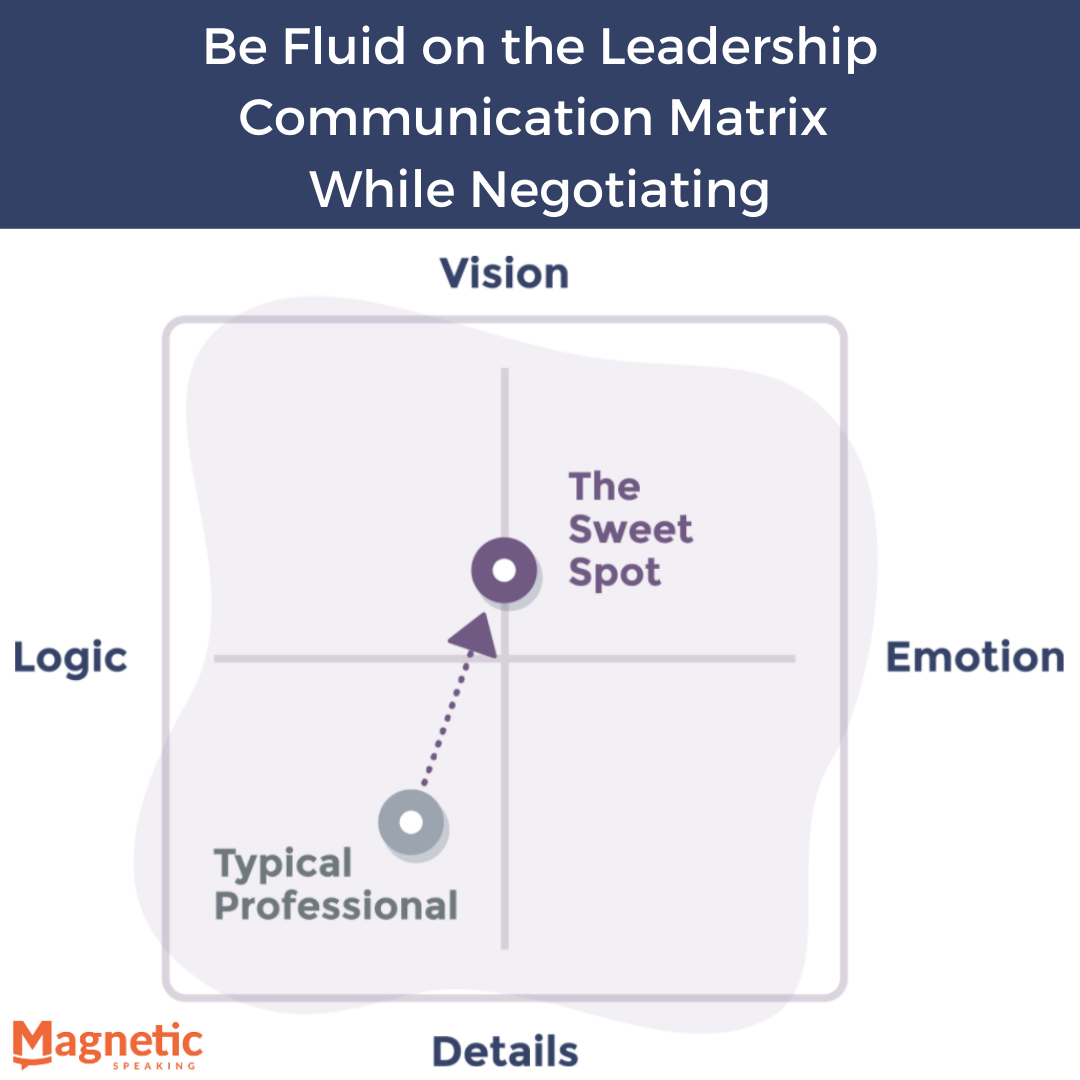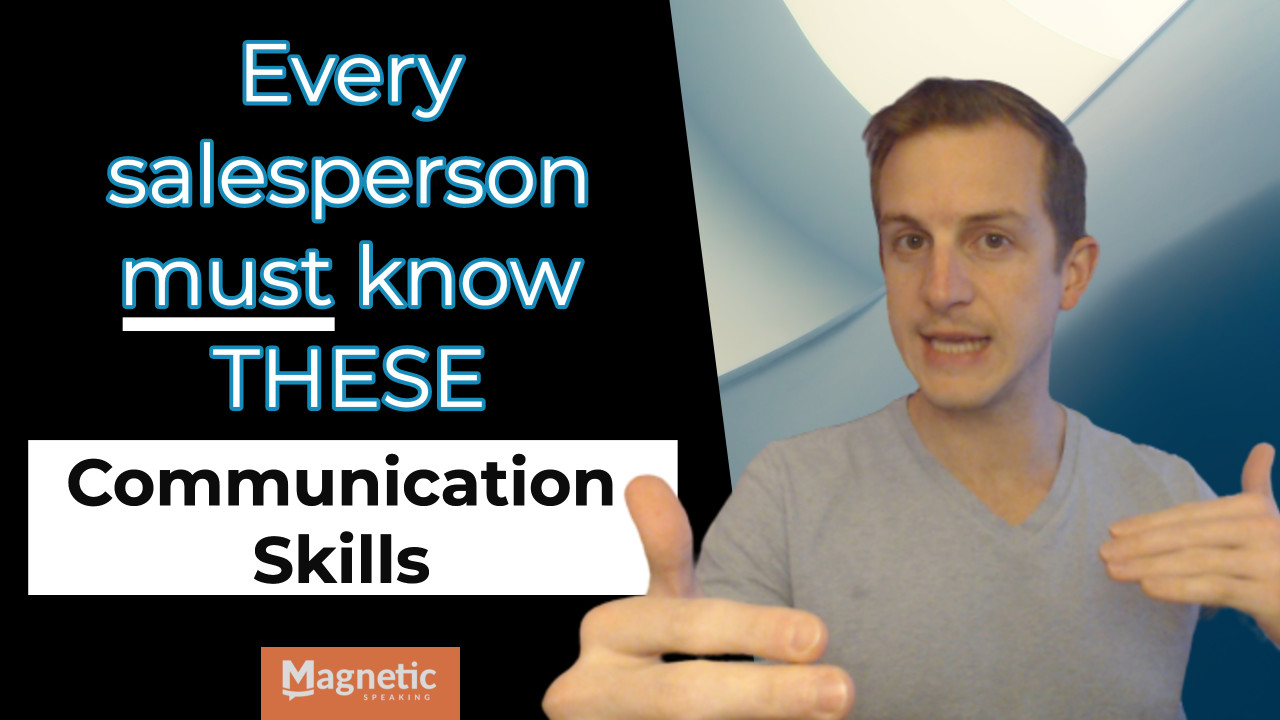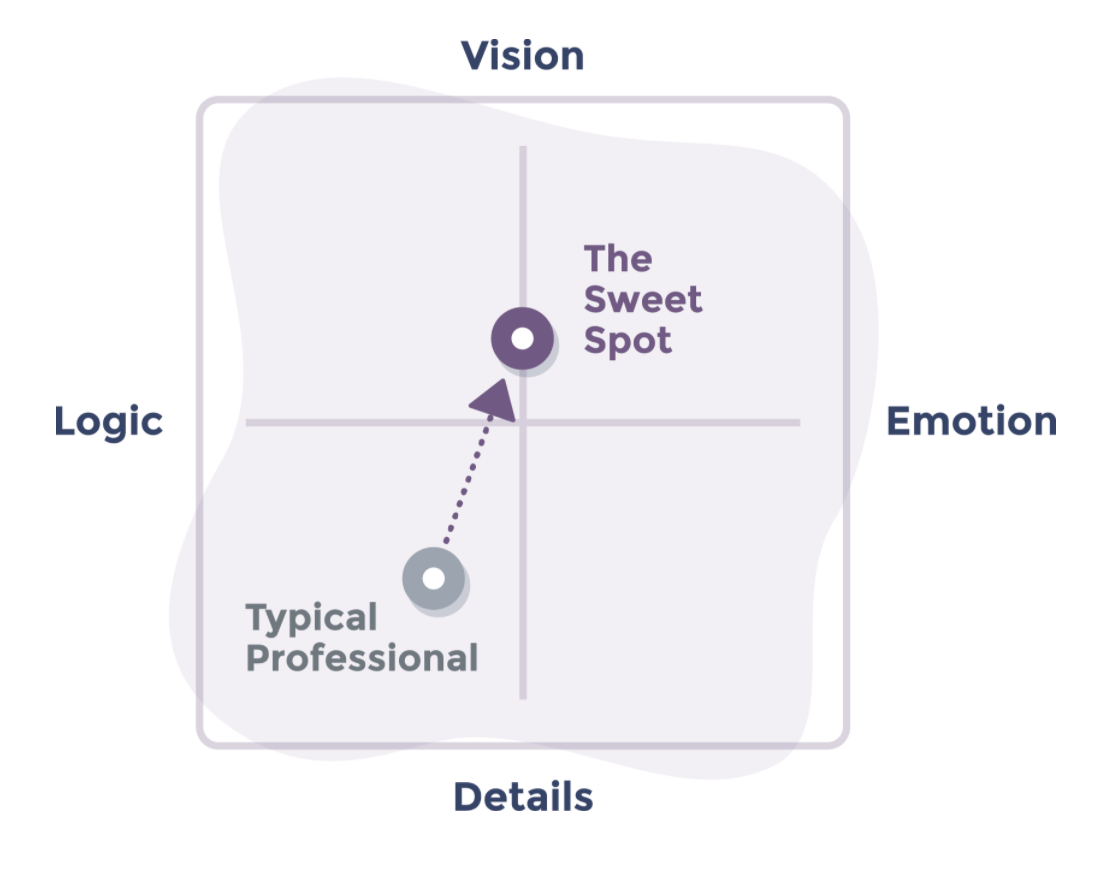In our last article, we broke down a key reason why sales training programs fall short: they assume that all salespeople have the same level of fundamental communication skills. This is just not the case.
A tiny percentage of a sales team will have the fundamental communication skills necessary to run with a sales training program or system. When they’re told to tell a customer success story, because of their prior training, they’ll know how to tell it. When they’re told to refocus the conversation if it derails, they’ll know what to say and how to say it.
But this represents a tiny fraction of the team. They have both the sales skills AND and fundamental communication skills necessary to bring in leads and close deals.
In this article, you’ll see the valuable difference between fundamental sales skills and fundamental communication skills and understand why they’re independent skill-sets that your sales teams need to win.

Difference Between Sales Skills and Communication Skills
So what’s the difference between sales skills and communication skills?
- Sales Skills: Leads to a sale
- Communication Skills: Leads to a better sales skill
Sales skills are the top layer of what’s needed from a salesperson. He or she needs to have those skills polished to be able to succeed.
Sales skills are skills like rapport building, handling objections, closing the sale and negotiation.
In order to execute those skills well, there are numerous communication skills that are required. Exploring these underlying skills is what we call, “looking under the hood.”

For example, to close a deal, a high-performing salesperson has to be effective at reading the other person, holding their ground, keeping a confident tone, having balanced energy, being concise and multiple other communication skills that boost the sales skill.
Looking Under the Hood
Now, let’s dive into 6 sales skills needed to succeed and the fundamental communication skills that SUPERCHARGE them.

Rapport building is needed for every salesperson to set a positive tone in the conversation. It helps break down barriers and allows you, as the salesperson, to get to know the prospect, connect with them and ultimately, create a sense of mutual trust.
Fundamental Communication Skills Needed to Supercharge Rapport Building:
Comfort
You first need to ensure you feel comfortable because how you feel will impact the other person. If you’re feeling nervous, for example, that energy may appear standoff-ish to someone.
Tone
You want to make sure you have a positive tone when starting the conversation and building rapport. If you’re not intentional with your tone, it may default to monotone and the client/prospect may not feel as engaged.
Pace
Seek a balanced pace. A pace fast enough to engage the prospect but not too fast to overload them.
Every salesperson is told right in the beginning of their training that they need to “control the conversation.” This means sticking to the agenda they’ve prepared, having an organized meeting and framing the conversation clearly so the prospect knows what to expect (to name a few).
Fundamental Communication Skills Needed to Supercharge Controlling the Conversation:
Having a tight organizational system for the introduction, body and closing
You can’t control the conversation if you don’t know what to say in the beginning of the meeting to set the right context. This means you need some kind of system to build out a powerful introduction and address the psychology of the prospect. The same applies to the meat of the meeting and the closing. Without a system, the salesperson may be shooting from the hip when trying to control the conversation.
Refocusing techniques
When the conversation derails, there’re ways to gently bring the conversation back to the agenda. Can you do this in an elegant way that isn’t rude or jarring? In communication, this is “refocusing.” You could say something like: “That’s an important point. I want to address that, but also want to make sure you understand this [other aspect] first so we’re both on the same page.” There’s many ways to refocus, but regardless, you need it to control the conversation.
Remaining in the moment vs being scripted
Controlling the conversation doesn’t mean that you rigidly stick to a set of questions or agenda items regardless of what happens on the call. You’ll sound scripted and unnatural. Instead, a fundamental communication skill is remaining in the moment while tracking where the conversation is headed. How many salespeople stop listening and think about the next thing they have to say? A trained rep can stay present and be able to adapt to what’s happening.
My sales trainer back in the day would ask me “Did you find the core challenge?” after a call. For me, it was hard to get to the core challenge because I didn’t want to sound like I was interrogating the customer when asking discovery questions.
Fundamental Communication Skills Needed to Supercharge Discovery Questions:
Framing the question
You can ask any question if you frame it right. For example if I want to ask you about how much money you made last year, I can ask it straight out and offend you, or I can say something like “I know it’s weird, but I need the following information to make sure you get the right product: how much money did you make last year? Ballpark answer is fine.” Notice that the second version is framed and it makes it easier to answer (it doesn’t mean that you’d get an answer necessarily, it means that you wouldn’t offend or scare the client).
Pausing
Many sales reps get freaked out when there’s a pause on the line; they assume that the prospect is not interested. You have to train yourself to be comfortable with the pause after you ask questions. Think of a good interviewer like Charlie Rose and notice the pauses he provides after questions. This is especially important for discovery questions because you want to give the prospect time to think without machine-gunning them with questions.
Acknowledgement
Interrogations don’t need acknowledgment, sales discovery does. Acknowledging your prospects’ answers tells them that you’re listening and it encourages them to share more. Acknowledgment can be non-verbal or verbal; A nod is non-verbal, saying “thank you for sharing that with me, it gives me a lot of insight on how to narrow down the options for you.”
To handle objections, the salesperson must be prepared with objection destroyer techniques and stories to successfully move the prospect past their concerns. It’s important to build these up before going into a call so they’re ready to go.
Fundamental Communication Skills Needed to Supercharge Objection Handling:
Storytelling
Every salesperson needs to have good storytelling skills and premade stories before going into a call. These are important because objections are typically linked with emotions of concern. In order to get past an objection you must communicate with the prospect’s emotional self and stories are a great way to do that.
Structuring the objection destroyer
You can also use stories as a way to structure objection destroyers. Once you have an idea of the objections that’re often brought up, you can come up with stories of how other clients have successfully gotten past them, showing there’s nothing to be worried about.
Staying calm under pressure
Staying calm when presented with an objection is vital because it shows you’re confident and keeps you looking like the authority.

Negotiation is an absolutely essential sales skill that comes in right towards the win. The prospect wants to move forward and the salesperson needs to find a deal that works for both sides.
Fundamental Communication Skills Needed to Supercharge Negotiation:
Thinking fast on the spot
The salesperson doesn’t know where the negotiation might go, which means they need impromptu speaking skills to handle the unexpected. If they don’t have Impromptu skills down, they may end up getting nervous and either shut down the deal or accept something that isn’t great for the company. Instead, they need to practice their ability to think and speak fast on the spot by developing what we call their poise, their openness and their creativity.
Navigating thinking styles
Everyone has their own unique psychology when coming into a meeting, and specifically, when approaching a negotiation. We call this “thinking styles.” A prospect might have a “Why” thinking style – they need to know why the product will truly benefit them and why they should care, which means you need to remind them during negotiation. If they have a “How” thinking style, you may need to show them how the solution is going to be implemented so they feel comfortable moving forward. Knowing how to calibrate in this way will ensure that the prospect feels understood and is happy with the end result.
Talking on the communication matrix

In a previous article, we broke down the leadership communication matrix that has the Vision-Details axis and the Logic-Emotion axis. During negotiation, the rep will likely need to bring in more vision into the conversation (what’s the future state for the prospect?) and not get lost in details. But once the deal is being worked out, they’ll need to be able to jump into details as well. On the Logic-Emotion side, sometimes the rep will have to bring in statistics, analytical reasoning or research to move it forward. Alternatively, they might need to bring in more visceral (Emotion) evidence – stories, analogies or scenarios. Having that flexibility on the matrix is essential to a smooth negotiation.
The sale process isn’t complete until the offer is presented. However, a sales rep shouldn’t get the credit for a bad offer or a sloppy offer. To make your offer elegant you’ll need to make sure your fundamentals are tight.
Fundamental Skills Needed to Supercharge Making an Offer:
Transition to the offer
An abrupt offer will scare the prospects. You need to transition elegantly into the offer section. An example of a transition “after talking with you I believe x is what you are looking for…” this is a transition. Notice that signals to the prospect that you will recommend something instead of suddenly saying “Ok it’s $299.”
Energy level
Another thing that makes an offer awkward is the energy of it. I see a lot of sales reps that get nervous, awkward, or hesitant while making the offer. The change of energy will spook the prospect and ruin all the rapport you built with them up to this point. It’s important to maintain the same energy level in the offer as you’ve had throughout the interaction.
Conclusion
Fundamental communication skills are crucial to the success of any sales rep. Without this foundation, the sales process might get awkward and clunky. The fundamentals make sales conversations more smooth and more elegant. That’s why it’s important to supplement any sales training with communication training.


